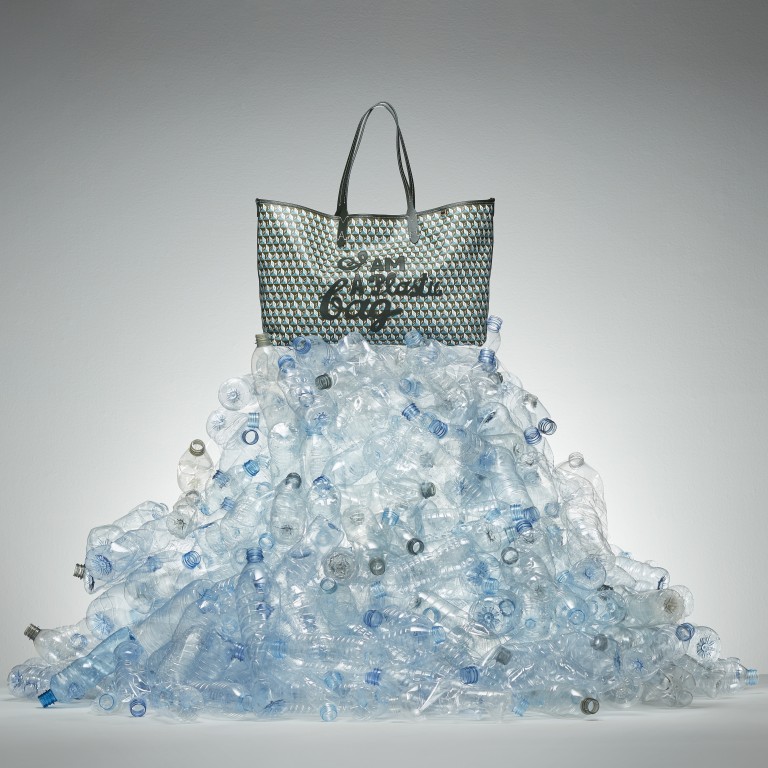Inside Anya Hindmarch’s sustainable fashion revolution: after the iconic ‘I am not a plastic bag’ with celebrity fans like Keira Knightley and Reese Witherspoon, she’s back with The Universal Bag

- Anya Hindmarch has helped drastically reduce Britain’s plastic bag use with her canvas tote and continues to innovate towards genuine zero-waste fashion
- The Universal Bag is popular already in supermarkets like Sainsbury’s and Waitrose, and has just added Hong Kong’s City’super to its list of global suppliers
In 2007, more than 80,000 people clamoured outside Sainsbury’s supermarkets across the UK for the instantly iconic “I am not a plastic bag” canvas tote – even though it had a production run of less than a quarter that number. In Taiwan, similar stampedes even sent 30 people to the hospital. The bag’s US$6 (£5) price tag soon multiplied 60-fold, with counterfeits fetching even more in some cases.

“Bags for life are not the answer: it seems like the noble next step from plastic bags, but in reality people take one every two weeks, and most of the time it’s not recycled,” says Hindmarch. “Ensuring something that’s 100 per cent recyclable is a challenge, but the No 1 is making something desirable, that people want to reuse. That’s half of the problem.”
Having run her eponymous label since 1987 – when she was only 18 years old – the London-based designer is known for her bespoke accessories such as bags printed with customers’ photographs, embossed with their drawings or messages in their own handwriting, as well as embroidered monograms. Last year, she extended her fashion footprint to a cafe, hair salon and more with The Village, a clutch of five shops in Knightsbridge, London.

With retail pieces that can be priced at upwards of US$1,100, Hindmarch’s fight against plastic on the back of a US$6 supermarket tote 15 years ago didn’t come naturally, especially given the hefty expenses incurred in research and in setting up the manufacturing.
Humans are such idiots, what are we doing wrong?
“I don’t really care [about cost]. I passionately care that we do the right thing. In the early days, when people didn’t understand sustainability, they were coming to the bag for the wrong reasons. But if a part of the message has changed their behaviour, then buy it,” she says, adding that her reward is knowing that every tote bag bought means less plastic destined for the landfill.
In 2020, version two of the “I am not a plastic bag” tote was launched highlighting a cotton, canvas-feel fabric created from 32 half-litre recycled plastic bottles, again designed to be kept forever. Hindmarch commemorated the debut during that year’s London Fashion Week by shutting her shops in the capital and filling them with 90,000 recycled plastic bottles – the number bought globally every six seconds.